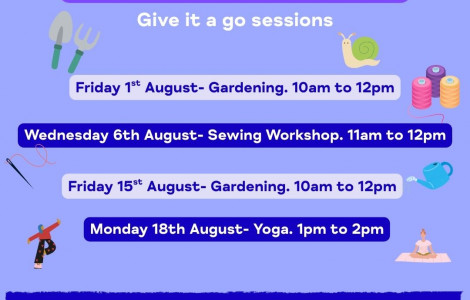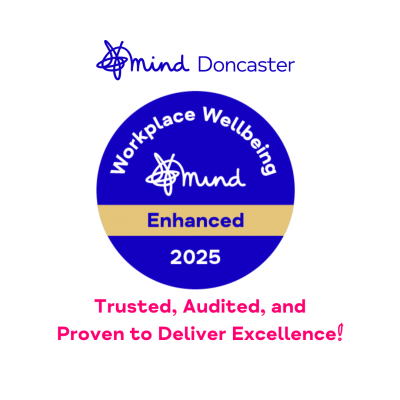1st August 2025 - 18th August 2025, 12:00
Talking therapies for children, young people (11+) and families
for talking therapies for adults please see our adults services
What are talking therapies?
Counselling and psychotherapy are known as talking therapy and can help if you are struggling with something. Talking to a skilled professional about your feelings, thoughts and experiences can help you to make sense of what is going on in your life, resolve complicated feelings like anxiety, or find practical ways to live with them. It can also help you to recognise unhelpful patterns in the way you think and act and find ways to change them.
How can talking therapy help me?
For some of us, talking therapy can be a really helpful way to understand our problems better, which can help us change how we deal with difficult situations and other people so that we manage these things in a more positive and helpful way.
People find talking therapies helps them in different ways – everyone’s experience is different. Sometimes it can be helpful just to talk to somebody confidentially and without judgement. This can help us feel less alone, or it may just be a relief to talk about what we’re going through with someone who will listen.
You might find it scary or hard to reach out for support from the people around you, like your family or friends. They might not understand immediately, or they might react in a way that feels unhelpful for you. If this is the case, you might find it more helpful to speak to a therapist.
Doncaster Mind is an organisational member of the British Association for Counselling and Psychotherapy (BACP), and the qualified practitioner you will be working with has been approved and vetted by us to deliver a high quality service.
What happens in a therapy session?
Firstly an assessment will be completed with you by our therapy co-ordinator, who will talk to you about what you can expect from therapy, how many sessions you will have and answer any of your questions, as well as taking some information from you so that we can match you to one of our experienced therapists.
In your first therapy session, your therapist will talk to you to find out more about what is going on for you and how they can help you or you might want to ask more about confidentiality (whether they will tell anyone else what you tell them).
After the first session, you will normally see your therapist once a week. What you discuss in each session will depend on what you’re struggling with and the type of talking therapy you are doing.
It might feel scary or difficult, but it’s important to try and be as honest with your therapist or counsellor as possible so they can help you in the best way. But, if there is anything you don’t feel comfortable talking about, that’s okay – just let them know. This is your therapy, so it is important it feels right for you.
Will my therapist tell anyone what I say in therapy sessions?
Anything you say in your therapy sessions is confidential. But, your therapist may have to tell someone if they think you or someone else might not be safe. Usually they will try to let you know first.
They may also discuss what you tell them with a supervisor (the person who helps them think about how they can best support you), but this is only to ensure you get the best treatment possible, and their supervisor also has to keep your information private and confidential.
Your therapist will write some notes about each of your therapy sessions. It is helpful for both your therapist to be able to refer to these notes as you progress through your therapy. Session notes are held within a secure database at Doncaster Mind and are not accessed by anyone other than your therapist and their supervisor.
Information for parents
Evidence shows the most helpful thing a parent can do is show an acceptance of therapy as a normal and useful activity and show an interest if their child wishes to talk about it, but not to press them if they don’t. If you have questions or would like support around therapy for either your child or yourself, please contact us at therapy@doncastermind.org.uk.
By choosing our service for your child or young person you are positively impacting your child's life AND someone elses. Each session that you pay for contributes to Doncaster Mind providing a free counselling service for adults in our community who need it.
Read about confidentiality & record keeping here.
Therapy for an individual child or young person
Life events (present, past and future), relationship problems, difficult feelings like anger and low self-esteem and long term health conditions can all lead to challenges to our mental wellness which can be faced and improved by working with a trained therapist. Talking therapy for individuals means just you and your therapist are working together. Sessions last for 50 minutes and are usually on the same day at the same time. Individual talking therapy costs £45 per session and a standard programme lasts for between 6 - 8 sessions.
Relationship/family therapy
All close relationships have their ups and downs. There are so many pressures on our lives and on our time the secure, happy and connected feelings in a relationships can be challenged by. The aim of working with a therapist is not to point the finger of blame but to listen differently to each other and learn to communicate more effectively in a safe, respectful space with your therapist. Sessions last for 50 minutes and are usually on the same day at the same time. Relationship/family therapy costs £60 per session and a standard programme lasts for between 6 - 8 sessions. Read more about what to expect in family therapy here.
Funded support
Dependant on contract funding, grant funding and funds generated by the service itself we are pleased to be able to offer free therapeutic support. Read more here.
To speak to us about how our therapy service can help you, please contact our therapy team on 01302 812190 or complete the form below and we will contact you within 5 working days.
By completing the form below you are giving permission for us to leave you a message if you are unable to answer when we call. If you are completing this form on behalf of someone else we will assume you have their permission for us to leave messages if necessary.




